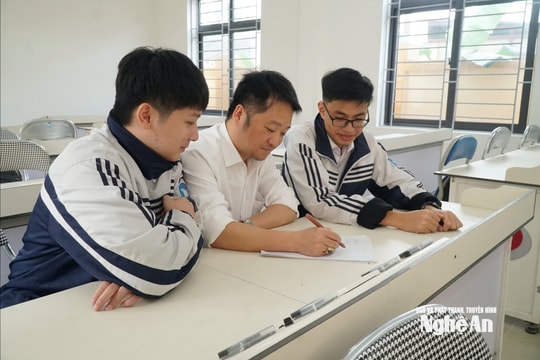To become a doctor, you will have to be a 'student' for life.
(Baonghean) - After 6 years of “only studying and taking exams” at university, doctors must continue their studies. For this profession, studying must be continuous to update knowledge about new diseases, as well as treatment methods that are constantly changing.
» General Practitioner - The most difficult major in Vietnam
Late at night, after finishing his work for the day, as usual, Dr. Nguyen Hong Truong buried his head in the computer to learn more about the medical field. Although he is currently the Director of Vinh City General Hospital, Dr. Truong still regularly treats patients directly. Like many other doctors, he often visits medical websites to find out if there are any better treatments for newly acquired diseases in the world.
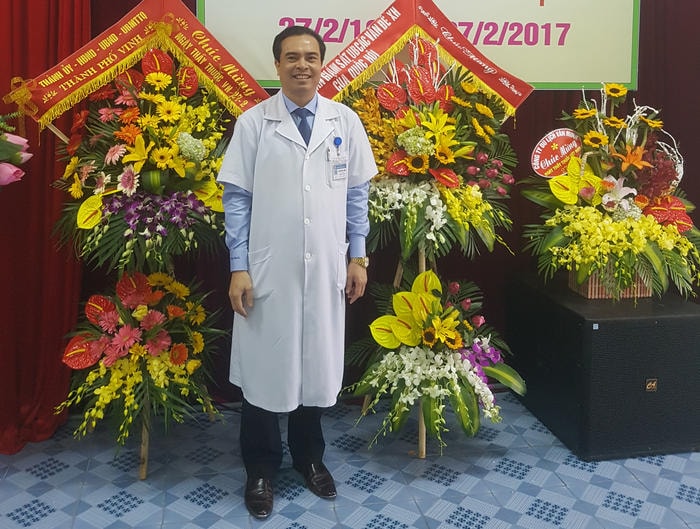 |
| Doctor Nguyen Hong Truong. Photo: NVCC |
Graduated from Thai Binh Medical University in 2001, worked in Vinh City for a short time, then Dr. Truong had to continue studying. Studying and working have been alternating until now.
“After graduating and working for a while, I first spent nearly a year studying orientation specialties. Then, in 2005, I had to spend another 2 years in Thai Binh to study specialty 1. After receiving my first specialist degree, in 2010 I studied for specialty 2. The last time I went to study in a concentrated manner was in Ho Chi Minh City to study a year of advanced specialties…”, said Dr. Truong.
In fact, since graduating from university, for 16 years, Dr. Truong has had to quit his job and stay away from home for more than 7 years to study and review for exams. That does not include the time he spent studying at home and learning from his colleagues at the hospital.
Doctor Truong believes that medicine is a special profession, the duty of doctors and physicians is closely linked to human health and life. Therefore, constantly updating knowledge and minimizing professional errors is a mandatory task. Currently, with the strong development of science and technology and the increasing demand for service quality, updating doctors' knowledge is extremely necessary.
For Dr. Tran Van Cuong - Deputy Director of Nghe An Obstetrics and Pediatrics Hospital, he cannot remember how many degrees and certificates he has after nearly 20 years of graduating. "I probably have about 50, including foreign language certificates from English to French" - Dr. Cuong said.
After graduating in 1999, after 6 years of studying at Hanoi Medical University, Dr. Cuong did not start working immediately but continued to study for the residency exam. This exam, according to Dr. Cuong, was even more difficult than the university entrance exam. “It was probably the most difficult exam of my life,” Dr. Cuong said.
After a period of intense exam preparation, Dr. Cuong was finally among the few candidates who passed the exam. However, during the nearly 4 years of residency, the learning process was even more difficult than the student days. During this time, students had to stay at the hospital almost all day to study.
“If you want to meet friends, relatives or go out, you can only go out after 10 p.m. But by then you are already too tired, so you usually can’t go anywhere,” said Dr. Cuong.
Studying took up almost all of his time, so in his second year, Dr. Cuong had to take advantage of nearly a week of Tet holiday to get married. His wife worked in Vinh City, and a few days after the wedding night, the groom had to rush off again.
After 10 years of continuous university and residency training, Dr. Cuong was accepted into the Emergency Resuscitation Department of Nghe An Obstetrics and Pediatrics Hospital. However, after a few years of working, he had to pack up and go back to school. This time, it was specialized courses in ultrasound, cardiology, etc.
“Doctors are like that, after working for about 2 years, they have to continue to go to school to update their knowledge. Not to mention having to take advantage of their free time to learn other skills such as foreign languages, computer science, and attend training sessions,” said the 42-year-old doctor.
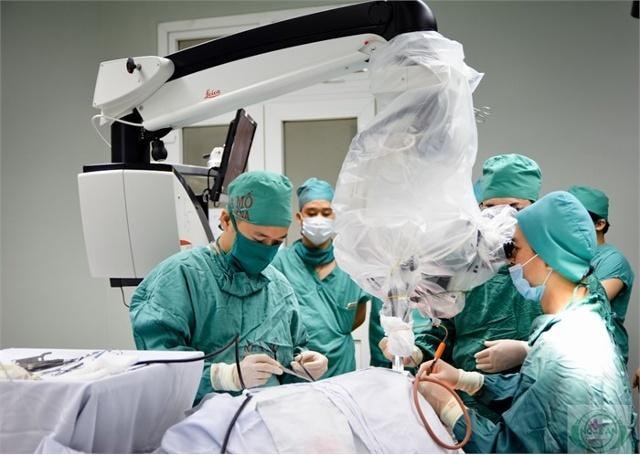 |
| A surgery at Nghe An General Hospital. Photo: BVHNDK |
Similarly, Dr. Pham Van Dung - Deputy Director of Hospital 115 said that since entering medical school, free time for family has been a luxury for him. "For many other professions, you can rest when you finish work. But for us doctors, we can rest when we finish work. Then we have to arrange our time to both work and study, it's very stressful!" - Mr. Dung said - "There are many weeks in a row where we don't get to see our children because we often have to leave early and come home late. Not to mention the months we spend away from home for extra classes."
Sharing about his time studying, Dr. Dung said that to be where he is today, in addition to 6 years of university study in Hue, he also spent 6 more years studying for advanced degrees and is still continuing his studies.
“Meanwhile, the study of doctors is also very hard, sometimes I don’t sleep a single sleep for a whole week. Studying surgical practice for half a day, my feet are tired, I can’t even wear slippers. Without passion, no one can pursue this profession,” said Dr. Dung, adding that today, in addition to the profound knowledge of a doctor, diagnostic tools such as: CT scan, X-ray, ultrasound, testing… have helped diagnose faster and more accurately. But machines are also made by humans, controlled by humans, so no matter how much science advances, the decisive factor is still human knowledge, which can only be achieved through efforts in studying.
Continuous learning is not only for those who are hospital leaders. Doctor Nguyen Ngoc Hoa - Head of the Department of Neurology - Nghe An General Hospital said that most doctors, regardless of their position, must update their knowledge and improve their qualifications. In fact, the requirement for doctors to "study for life" is even included in the law.
“Recently, the Ministry of Health has drafted a regulation that all doctors must regularly update their medical knowledge; must receive at least 48 hours of medical training in two consecutive years. Otherwise, their practice certificates may be revoked,” said Dr. Hoa.
Depending on the hospital level, there are specific regulations, but usually positions such as department heads and hospital leaders must have postgraduate qualifications. For example, Dr. Hoa has just returned from a 5-year study abroad trip to get a doctorate in Japan. He graduated 19 years ago but has now spent more than 8 years studying in a concentrated manner, not to mention short-term training sessions or seminars in the industry.
Mr. Phan Quoc Hoi - Head of Training Department, Vinh Medical University said, to update knowledge, many doctors even voluntarily register to teach at the school.
“They want to teach not only to impart knowledge to students but also to update their own knowledge. Because in the process of teaching, they also have to research more knowledge and new treatment methods,” said Mr. Hoi.
When working in medical facilities, no matter what field, doctors do not stop learning there. The knowledge they are equipped with at medical school is not enough to help them do their job well, they continue to learn: Orientation specialty, specialty I, specialty II, master, doctorate...
But as the disease pattern changes, society and science develop more, the more learning is required, only then can doctors keep up with the general progress of medicine, and meet the requirements of the job. Therefore, when choosing this job, doctors accept themselves as lifelong students.
(To be continued)
Tien Hung


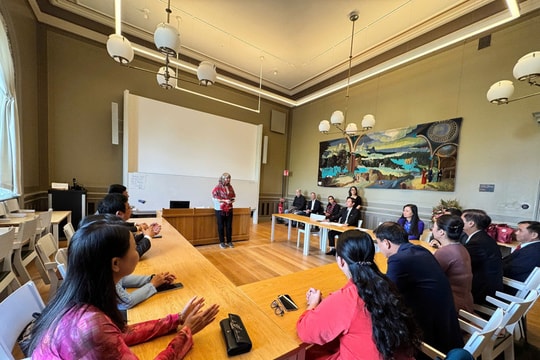
.jpg)
.jpg)
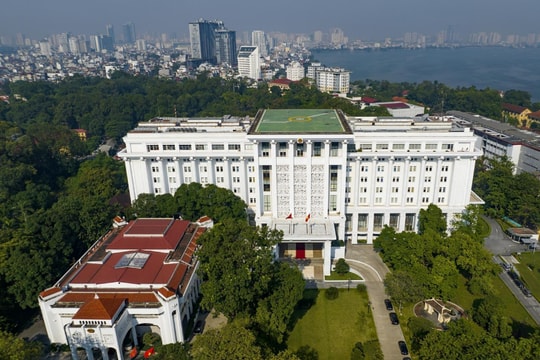
.jpg)
